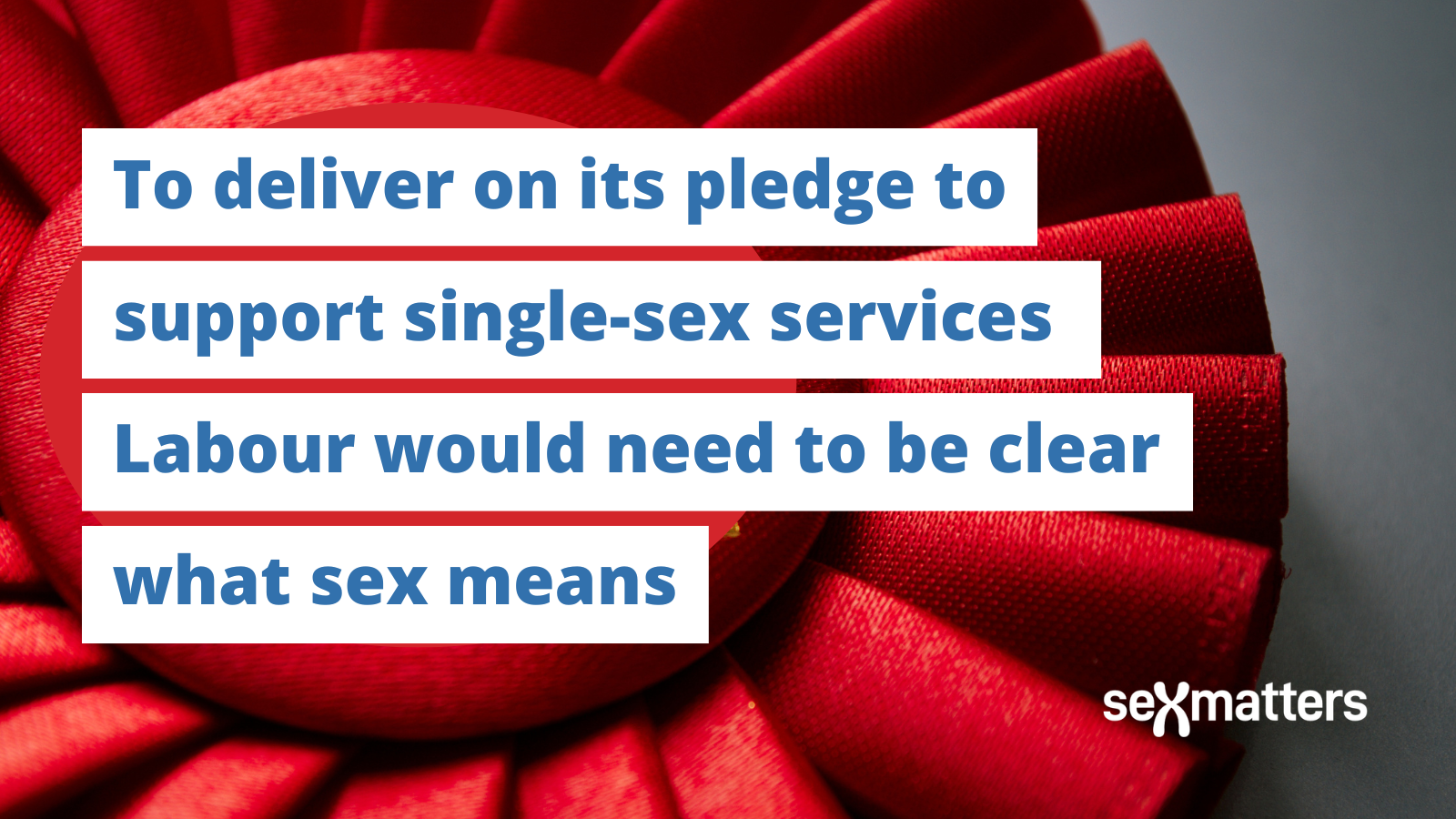This post is part of the Stand up for single-sex services campaign |
The Labour manifesto: waging culture war over women’s rights

The Labour manifesto has been published. Women across the country will be deeply disappointed that the party, which in its manifesto professes pride for the landmark 2010 Equality Act, has failed to recognise that in 2024 this legislation is no longer providing the protection to women it was intended to. There is a weak pledge to “continue to support the implementation of its single-sex exceptions”. But the reality for women and girls is that because of the confusion faced by businesses, charities, local authorities and other public bodies about what the protected characteristic of sex means, service providers are either afraid to communicate and enforce clear single-sex policies, or are actively removing them.
Landing on the desk of any new Secretary of State for Women and Equalities in July will be evidence from a consultation, launched by the previous government, of how this confusion is playing out. If it forms the next government, the Labour Party will need to understand that to deliver on its pledge to support single-sex services it will need to be clear that this doesn’t mean gender self-ID.
A consequence of this failure to recognise the need for greater clarity on the protections for women in the Equality Act is that the manifesto’s pledges to tackle violence against women and girls are undermined. If those running women-only spaces and service across the domestic-abuse, rape-crisis and criminal-justice sectors do not have legal clarity, they will not be able to offer secure, clear female-only services to women escaping from violence and abuse. Our research with leaders in the women’s sector highlighted how the lack of clarity about the law is undermining these services, creating conflict and chaos.
Labour’s pledge to “modernise, simplify, and reform the intrusive and outdated gender recognition law” is vague. Any move to make it easier for people to gain gender-recognition certificates without clarifying and constraining the effect of those certificates will result in self-ID of sex by the back door.
As Lucy Hunter Blackburn told the Scottish committee considering this move:
“Think of it this way. If a GRC is a sort of key, and you are going to hand out lots more copies to a more diverse group, the first job of legislators is to be really clear about what that key could unlock.”
Another set of consultation responses that will land on new ministers’ desks is on changes to the NHS Constitution. Absent from the manifesto is a pledge to ensure that women have access to single-sex hospital wards, something Wes Streeting had previously signalled that the party supported.
The manifesto pledges to introduce a new and dangerous law to ban “conversion practices”, while pledging at the same time to “stop the chaos… and division” arising from the conflict between women’s rights and the rights of people who identify as trans. Given that there is no evidence of a wave of abhorrent conversion practices going on in the UK, and the fact that laws against assault, kidnap, child cruelty, neglect and violence already exist and outlaw abuse, the promise to enact this legislation can only be described as an act of culture war – something that progressive politicians profess to abhor.
This pledge will also undermine Labour’s welcome commitment to working to implement the expert recommendations of the Cass Review in order to ensure that young people presenting to the NHS with gender dysphoria receive appropriate and high-quality care.
A future Labour government would soon find, as the Conservative government did, that upholding the findings of the Cass Review is simply not compatible with meeting the demand for a conversion therapy ban, because many of those who advocate for a ban view the Cass approach of exploratory talking therapy as “conversion”.
Finally, the pledges related to hate crime are at risk of spectacularly unravelling. The manifesto includes a commitment to making all existing strands of hate crime an aggravated offence. The Scottish government learned at some cost that putting through badly thought-through legislation in this area, which does not give due regard to the rights of freedom of expression or freedom of thought, is extremely unwise. A Labour government would be well advised to consult widely and consider the interests of all groups before it goes down such a legislative path.

